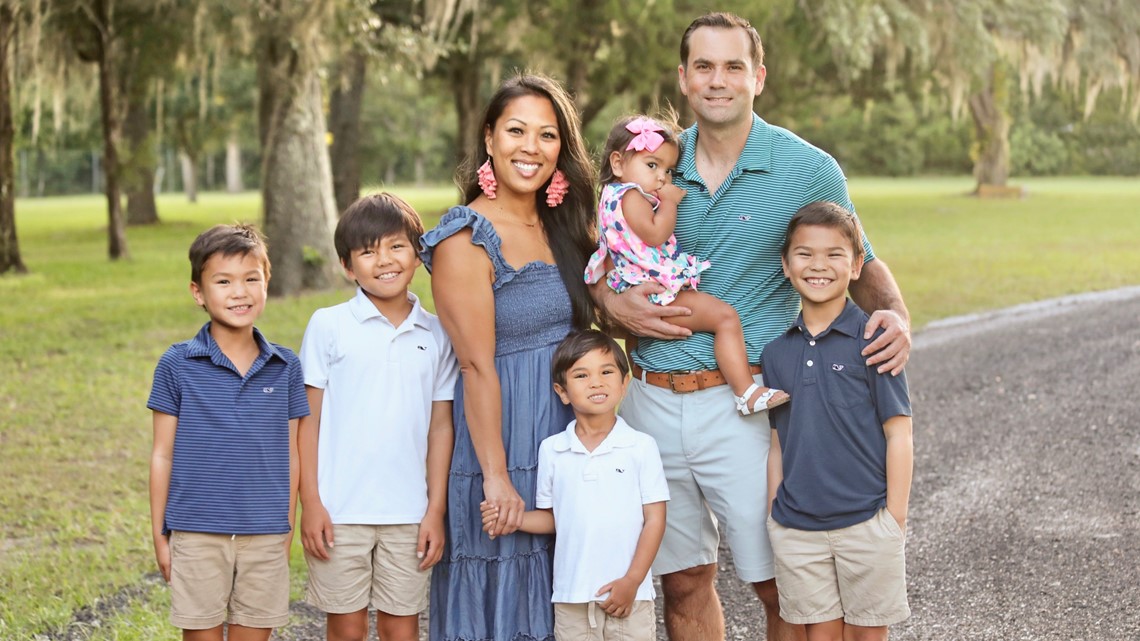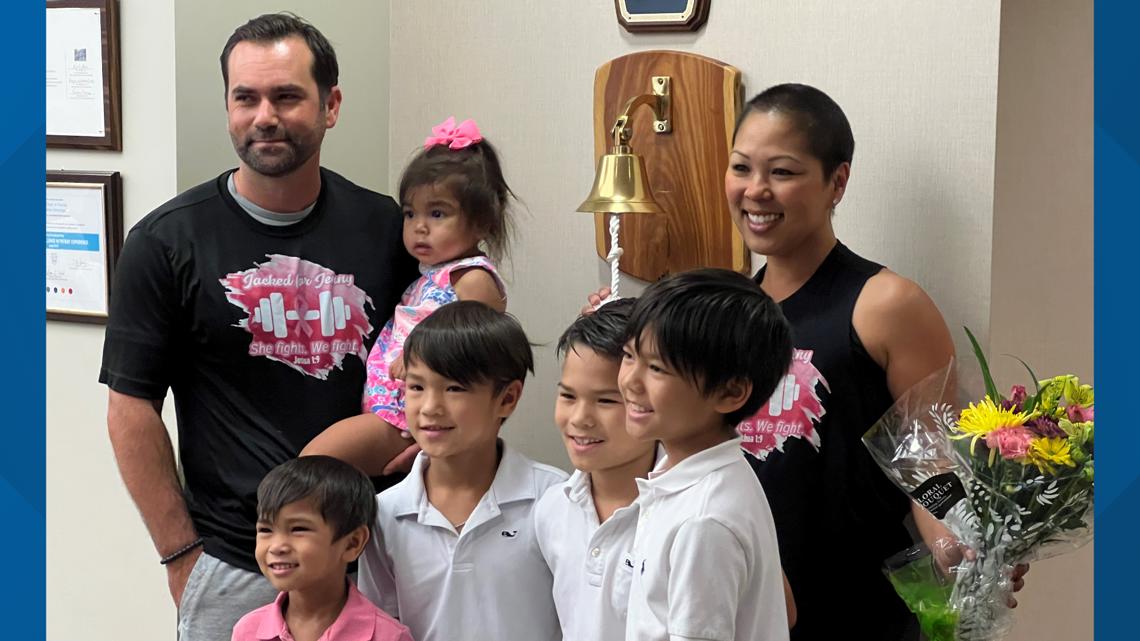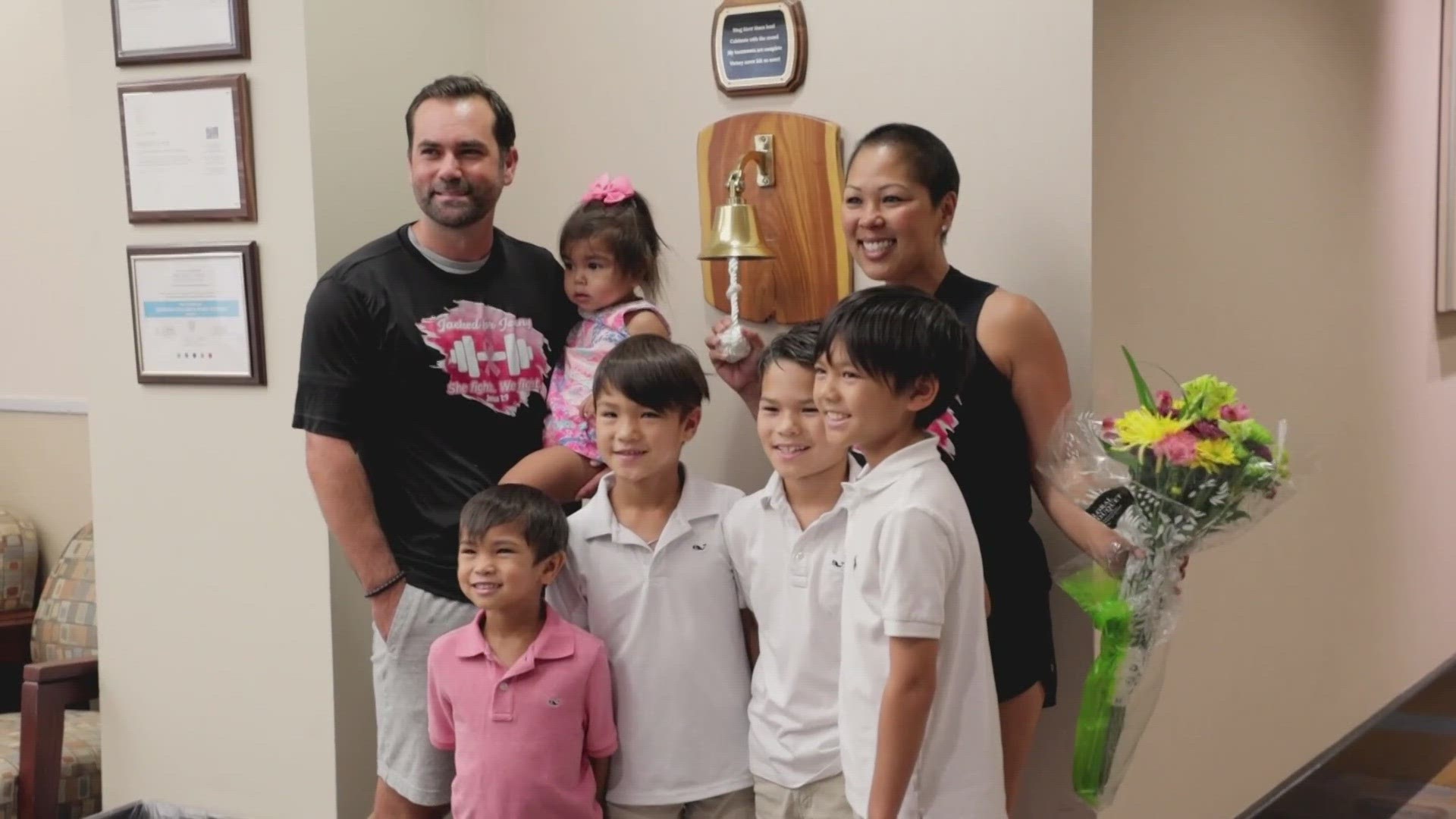JACKSONVILLE, Fla. — It started with a swollen lymph node Jenny Felix noticed in her armpit.
“I did a self-check and went to the doctor just to have them confirm because I wasn't really sure if I was doing it right,” Felix said.
Just days after she turned 39 a biopsy revealed the mother of five had breast cancer, Stage 2, invasive ductal carcinoma (IDC).
“I was sitting in the Publix parking lot. I had just dropped my kids off at school. It was the second day of school. And I was by myself when I got the call,” Felix recalled. “It was really surprising, but at the same time something was telling me that this possibly could be positive. I feel like I prepped myself really well to receive that call.”
A positive attitude that stuck with her as she juggled motherhood and cancer.


“My oldest is 11. And then I have a nine-year-old, seven-year-old, five-year-old, and baby girl is two,” Felix said. “That was the difficult part, just having so many children. My four boys were all into sports, so adding breast cancer treatments on to their sports schedule was really tough.”
She documented her journey on Facebook. After five months of chemo at Mayo Clinic in Jacksonville, Jenny had both breasts removed.
“I got an aesthetic flat closure, so I chose not to have reconstruction done,” Felix said. “And then I also had my ovaries and tubes removed which was recommended by my doctors.”
Then it was on to 25 rounds of radiation.
“Because Jenny's cancer was on the left side, it's in close proximity to the underlying heart. She's also extremely young, so we wanted to be very, very careful about sparing her, her heart and her lungs. So, for Jenny, we really pulled out all stops,” Dr. Laura Vallow, Chair of the Department of Radiation Oncology at Mayo Clinic Florida, said.
That included using an innovative black box to help protect her heart and other organs.
“We used a technology called respiratory gating, which is a way that we can deliver the radiation therapy in timing with her respiratory cycle,” Dr. Vallow said.
“The black box that was on my belly. It was connected to a lot of cameras that were around the radiation room. And it would monitor when I would hold my breath. So, when I held my breath, then that's when the radiation machine would go on. And then when I breathed it out, when I exhaled, the radiation machine would automatically stop,” Felix explained.
The treatment was a success. On her final round of radiation, the waiting room was packed full of her supporters to cheer her on as she rang the bell.


Surgical Tech Jennifer Hill who was part of Felix’ surgery team at Mayo Clinic and is also a breast cancer survivor was there to support her.
“She literally is somebody that just is an empowerment and embodies the spirit of a fighter,” Hill said. “I look forward to seeing her grow and flourish and be healthy and spread the word that you know what cancer didn't take her down. This is a disease that you can win, and you can fight.”
It's a battle Felix has courageously fought. And now one year after her diagnosis, her future is bright.


“I would consider her cancer-free,” Dr. Vallow said. “Her prognosis is good. And we're very hopeful for her.”
Felix credits exercise with helping her get through the treatments, along with a strong support network and the power of prayer. Through this journey her faith has grown.
“I feel like God handed me this for a reason. I think that God knows that I'm an oversharer. And that I would overshare on Facebook about my journey, which I did,” Felix said. “And since then, I've had almost ten friends who have been diagnosed with breast cancer or other cancers after me this past year.”
Her message for women, early detection saves lives.
“Get mammograms. Don't be scared of getting it done,” Felix said. “Don't be scared of the results that could possibly come from it because early detection is key”.
Dr. Vallow wants to remind women if you feel something abnormal, get it checked out. If you don't get answers to your questions, get a second opinion.
The new American College of Radiology guidelines now call for all women to have a breast cancer risk assessment by age 25 to determine if screening earlier than 40 is needed.

